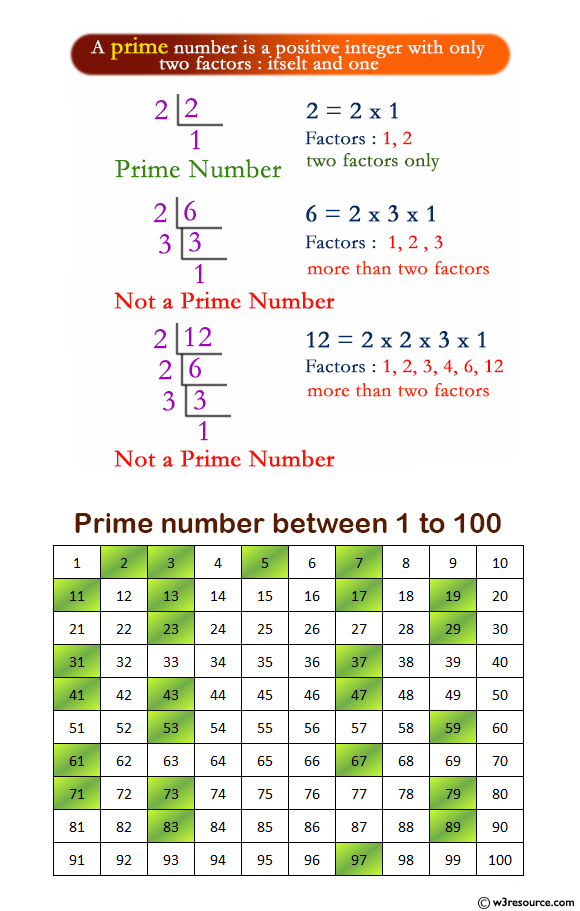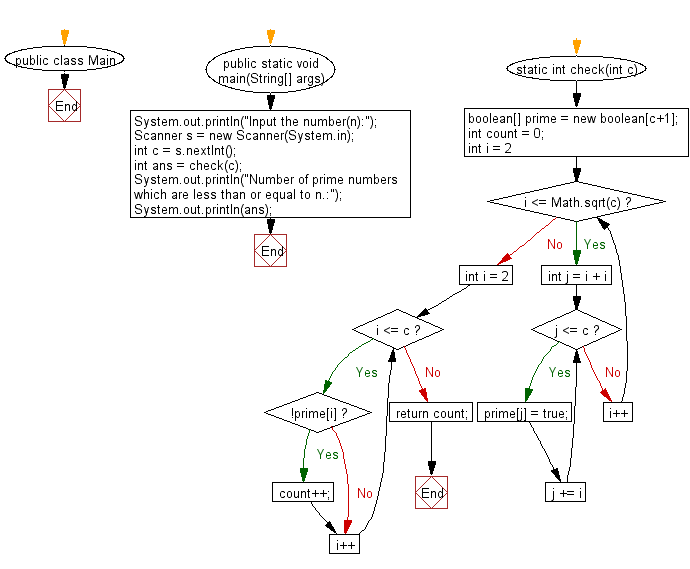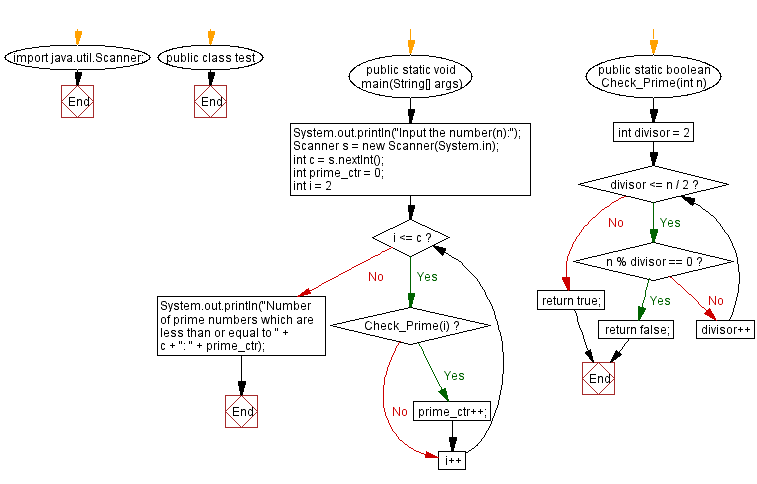Java: Print the number of prime numbers which are less than or equal to a given integer
Count Prime Numbers ≤ N
Write a Java program to print the number of prime numbers less than or equal to a given integer.
Input:
n (1 ≤ n ≤ 999,999).
Visual Presentation:

Sample Solution-1:
Java Code:
import java.util.Scanner;
public class Main {
public static void main(String[] args) {
// Prompting the user to input the number (n)
System.out.println("Input the number(n):");
// Creating a Scanner object for user input
Scanner s = new Scanner(System.in);
// Reading the input number (n) from the user
int c = s.nextInt();
// Calling the check method to find the number of prime numbers
int ans = check(c);
// Displaying the number of prime numbers which are less than or equal to n
System.out.println("Number of prime numbers which are less than or equal to n:");
System.out.println(ans);
}
// Method to check the number of prime numbers
static int check(int c) {
// Creating a boolean array to mark numbers as prime or not
boolean[] prime = new boolean[c + 1];
// Initializing a counter for prime numbers
int count = 0;
// Loop to mark non-prime numbers in the array
for (int i = 2; i <= Math.sqrt(c); i++) {
for (int j = i + i; j <= c; j += i) {
prime[j] = true;
}
}
// Counting the number of prime numbers
for (int i = 2; i <= c; i++) {
if (!prime[i]) {
count++;
}
}
// Returning the total number of prime numbers
return count;
}
}
Sample Output:
Input the number(n): 1235 Number of prime numbers which are less than or equal to n.: 202
Flowchart:

Sample Solution-2:
Java Code:
// Importing the Scanner class to read user input
import java.util.Scanner;
// Main class named "test"
public class test {
// Main method
public static void main(String[] args) {
// Prompting the user to input the number (n)
System.out.println("Input the number(n):");
// Creating a Scanner object for user input
Scanner s = new Scanner(System.in);
// Reading the input number (n) from the user
int c = s.nextInt();
// Initializing a counter for prime numbers
int prime_ctr = 0;
// Loop to iterate through numbers and check for primes
for (int i = 2; i <= c; i++) {
// Checking if the current number is prime using the Check_Prime method
if (Check_Prime(i)) {
prime_ctr++;
}
}
// Displaying the number of prime numbers which are less than or equal to n
System.out.println("Number of prime numbers which are less than or equal to " + c + ": " + prime_ctr);
}
// Method to check if a given number is prime
public static boolean Check_Prime(int n) {
// Loop to check for factors of the number
for (int divisor = 2; divisor <= n / 2; divisor++) {
// If the number has a factor other than 1 and itself, it is not prime
if (n % divisor == 0) {
return false;
}
}
// If no factors were found, the number is prime
return true;
}
}
Sample Output:
Input the number(n): 1235 Number of prime numbers which are less than or equal to 1235: 202
Flowchart:

For more Practice: Solve these Related Problems:
- Write a Java program to count the number of twin prime pairs less than or equal to n.
- Write a Java program to list and count all prime numbers within a given range using the Sieve of Eratosthenes.
- Write a Java program to count primes less than n while excluding primes that end with a specific digit.
- Write a Java program to count the number of primes ≤ n and then compute the sum of these prime numbers.
Go to:
PREV : Count Combinations for Sum N.
NEXT : Compute Circle from Three Points.
Java Code Editor:
Contribute your code and comments through Disqus.
What is the difficulty level of this exercise?
Test your Programming skills with w3resource's quiz.
